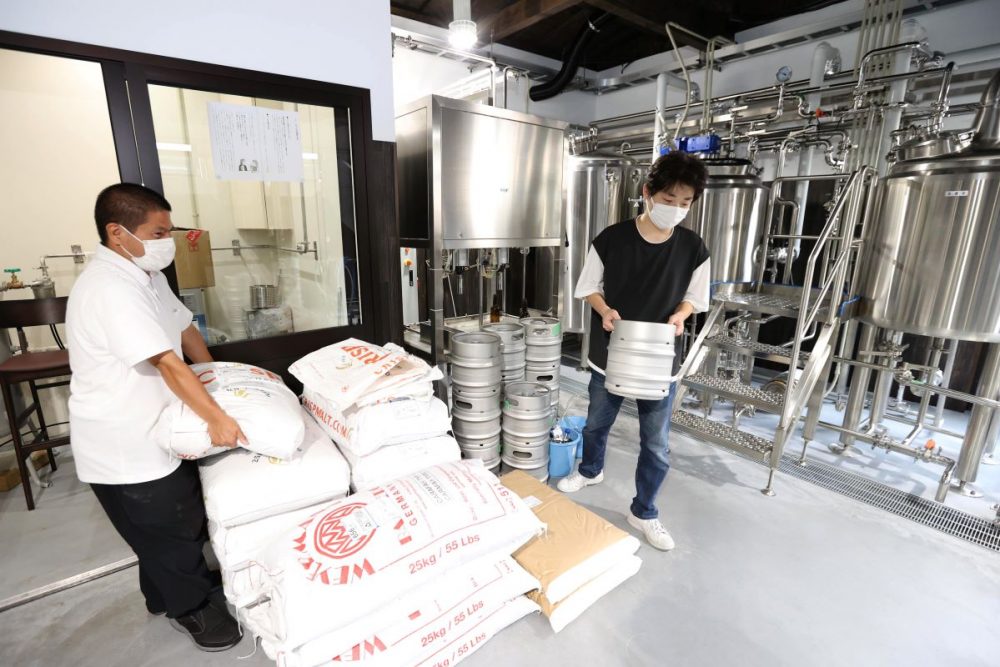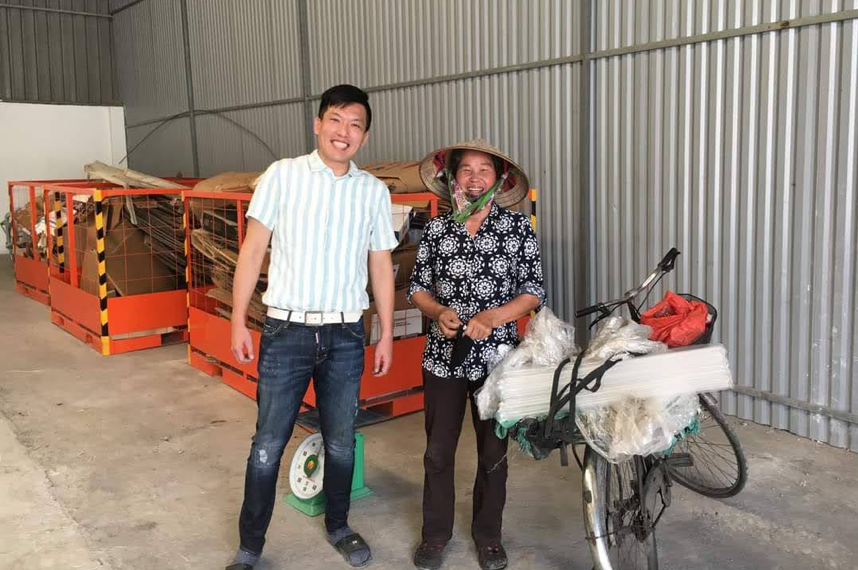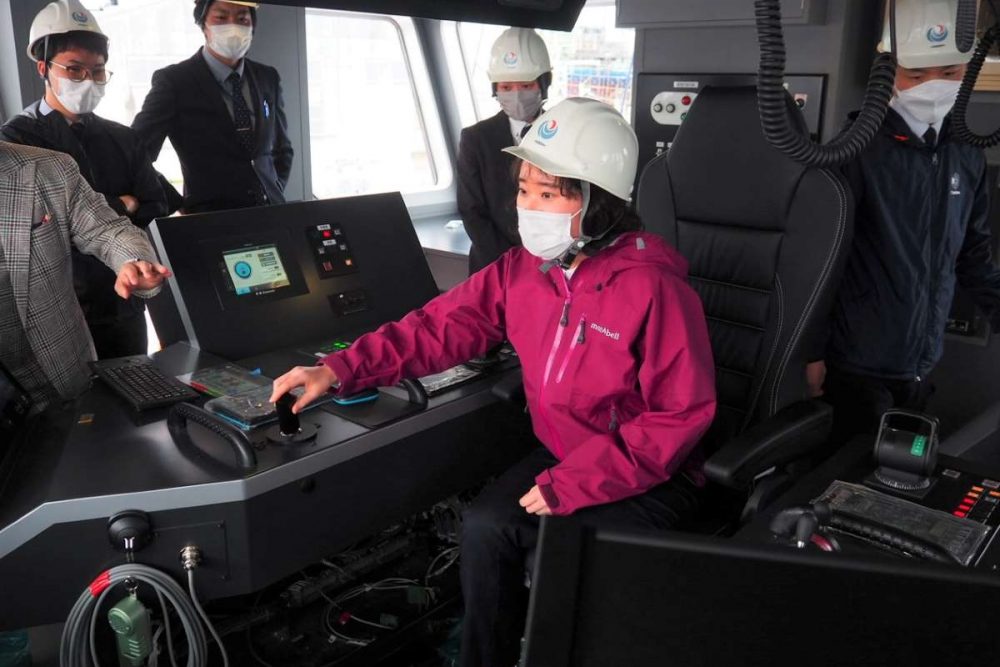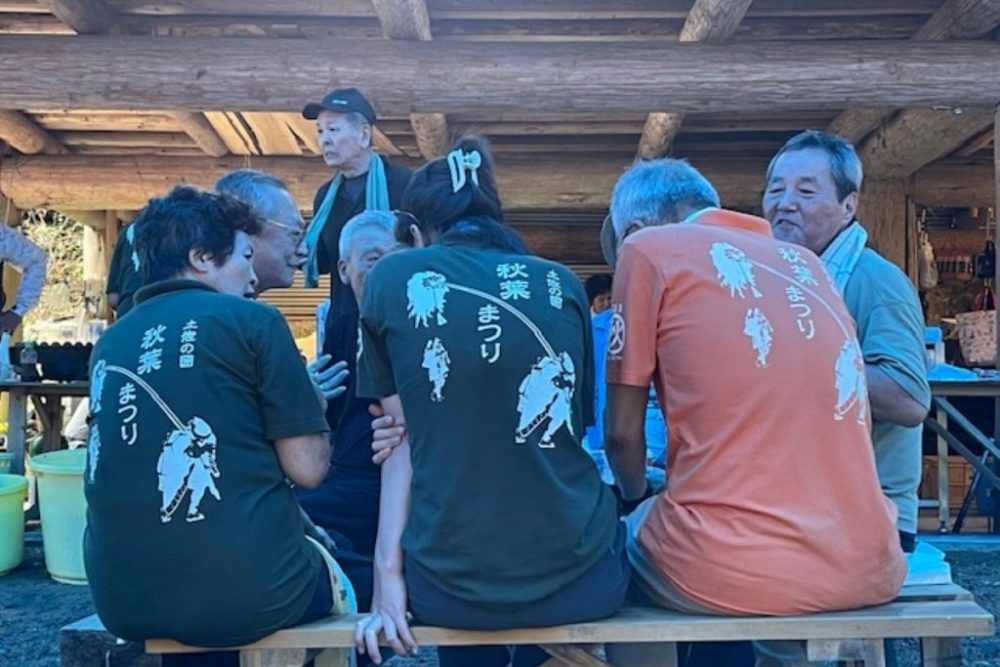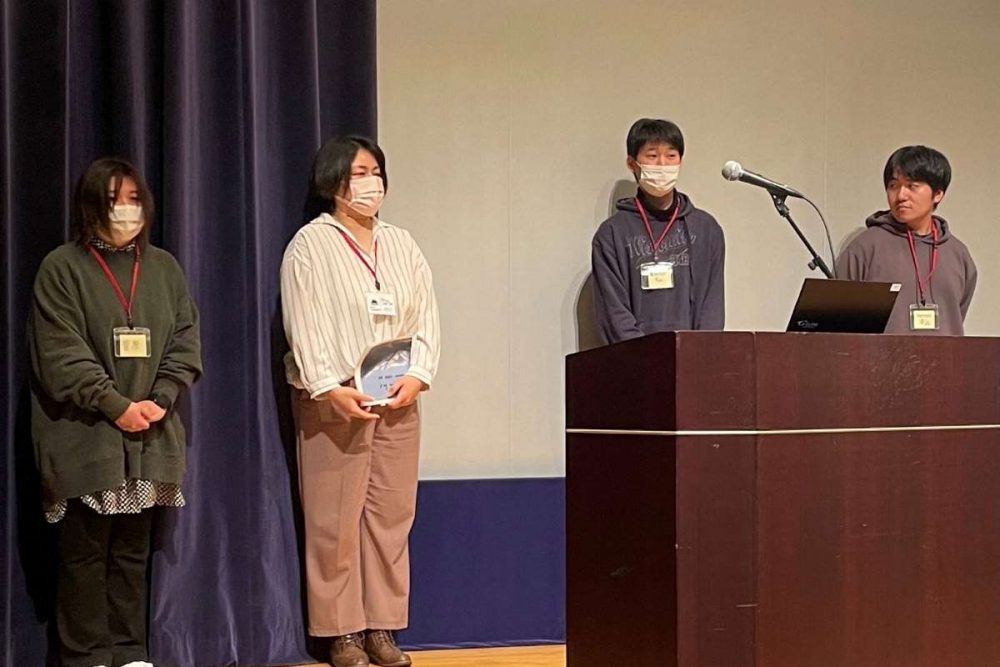Horses Provide Healing and Business Opportunities for Regional Revitalization
Across Japan, horses are serving as vehicles for promoting mental health and community and economic development. Horse manure is even being made into paper.
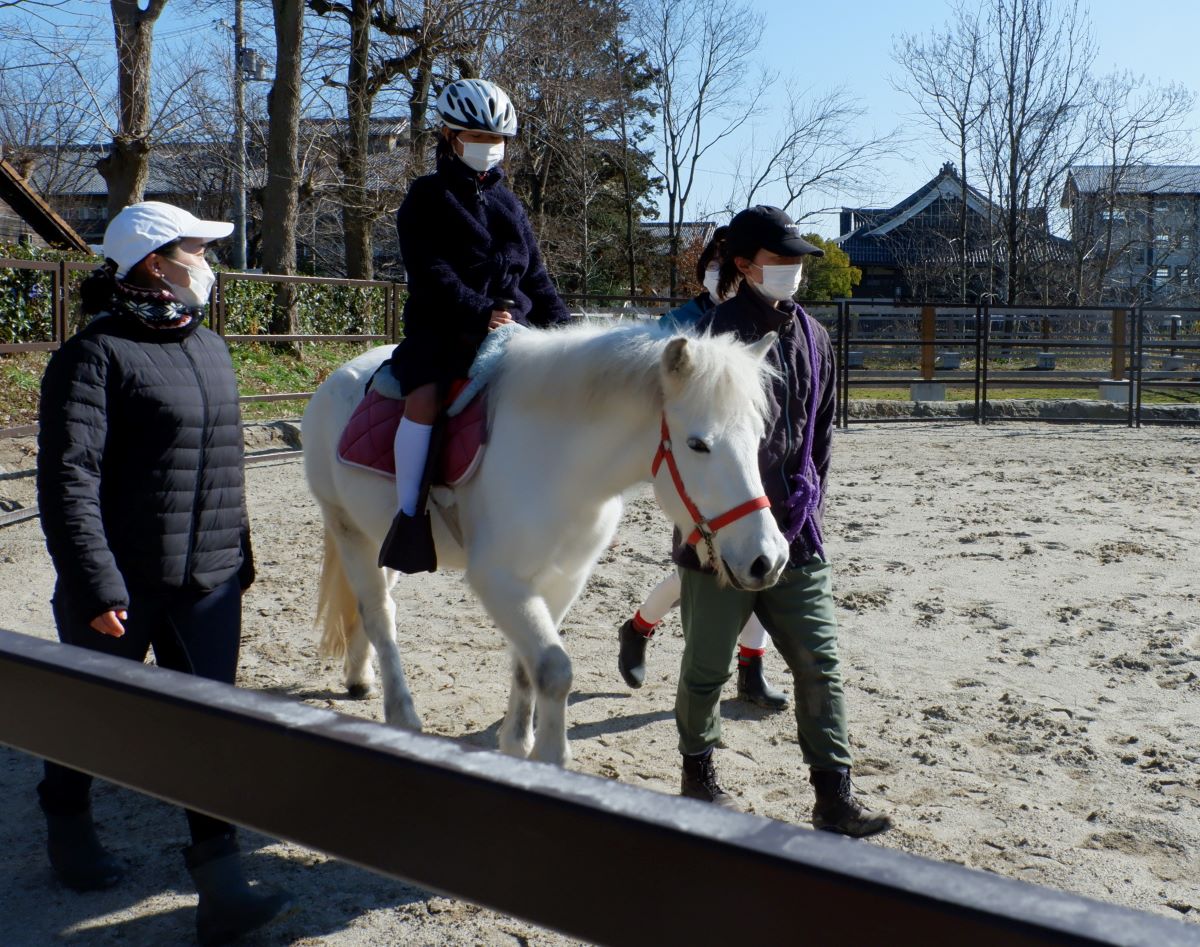
このページを 日本語 で読む
Horses have been people's companions since ancient times, playing roles in both farming and transportation. In recent years, they have served to comfort children, provide environmental protection, and contribute to community revitalization.
Horses are the go-betweens of the natural environment and human production and economic activities, and they are close to our hearts. In various locations across the country, efforts focusing on these reliable and gentle creatures are on a slow and steady rise.
Intelligent Animals
Tenten, a 9-year-old pony of the equestrian club at Tenri University in Tenri city of Nara Prefecture, is a favorite with children. "His mane looks so beautiful in the light. Riding a horse is scary because you're up so high, but it feels nice," says a fourth-grade boy.
About 20 students from the city's "Challenge Manabiya" child development support center visit the facility every other week. There, they spend time with four horses, including Tenten and an old thoroughbred.
"Horses are incredibly intelligent animals. They are gentle and can become close with people," reports Katsuhiko Sumii, 59, an advisor to the facility. Since 2019, Tenri University has run a "horse therapy" program aimed at providing emotional care for children through interaction with horses.
In April 2023, a special course on horse therapy was offered through funding from the Japan Racing Association (JRA). The course is also open to persons not enrolled at the university. It includes instruction on interacting with horses, as well as their history, anatomy, and relevant legal frameworks. The lecturers are Sumii and University of Tokyo Professor Emeritus Hirokazu Tsubone, a leading expert on horse therapy.
Sumii, a former JRA trainer, has had to part with many horses. Roughly 9,000 thoroughbreds are born annually in Japan. But after retiring from facing, only a handful get to spend the rest of their lives in riding clubs, and many are "disposed." As the number of horse therapy facilities increases, "it would be wonderful if more retired horses could live out the rest of their lives in peace," Sumii comments.
Paper from Manure
Haruka Tatsumi, 34, who has experienced the healing effect of horses, also seized a business opportunity. The company she runs, Osaka-based Horse Droppings, makes paper using fibers extracted from horse manure. With a texture similar to traditional Japanese washi, the paper is used for business cards, bookmarks, postcards, and more.
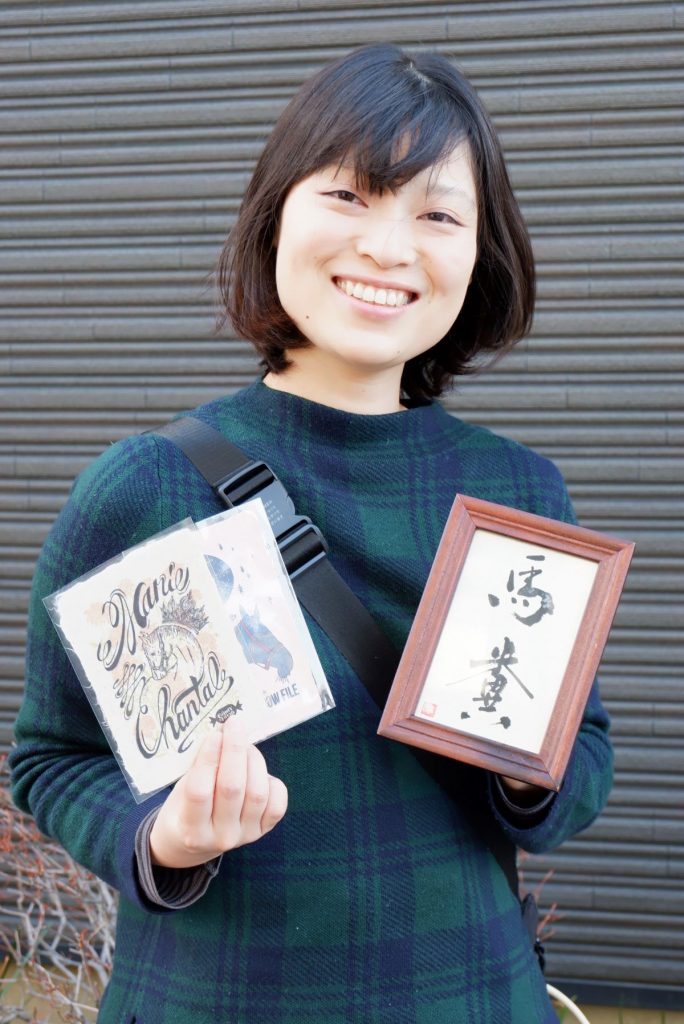
Tatsumi, a former nurse, retired due to health problems arising from her busy hospital schedule. She reports finding healing at the horseback riding club she attended during recuperation. Eventually, she moved to Urakawa, Hokkaido, a town known for producing racehorses. There, she began working at a community development cooperative in 2015.
When she saw horse manure being discarded, she suddenly had a realization. "In India, paper is made from elephant dung. Could we also do this with horse manure, which is high in fiber?" Following four months of planning, the project was successfully developed in the summer of 2016.
The Production Process
The manure is dried for two to three weeks to remove the odor, then boiled in water and lime for four to five hours to extract the fiber. It is then mixed with pulp and water to produce paper.
Tatsumi later left Urakawa due to a heart condition, but continued her business from her home in Osaka. Dried horse manure is procured from Candy Farm in Urakawa and Share Horse Island, a tourist ranch on Awaji Island in Hyogo Prefecture. After the fiber is extracted, Tatsumi outsources the paper-making to a washi workshop called Shoroku, also in Awaji.
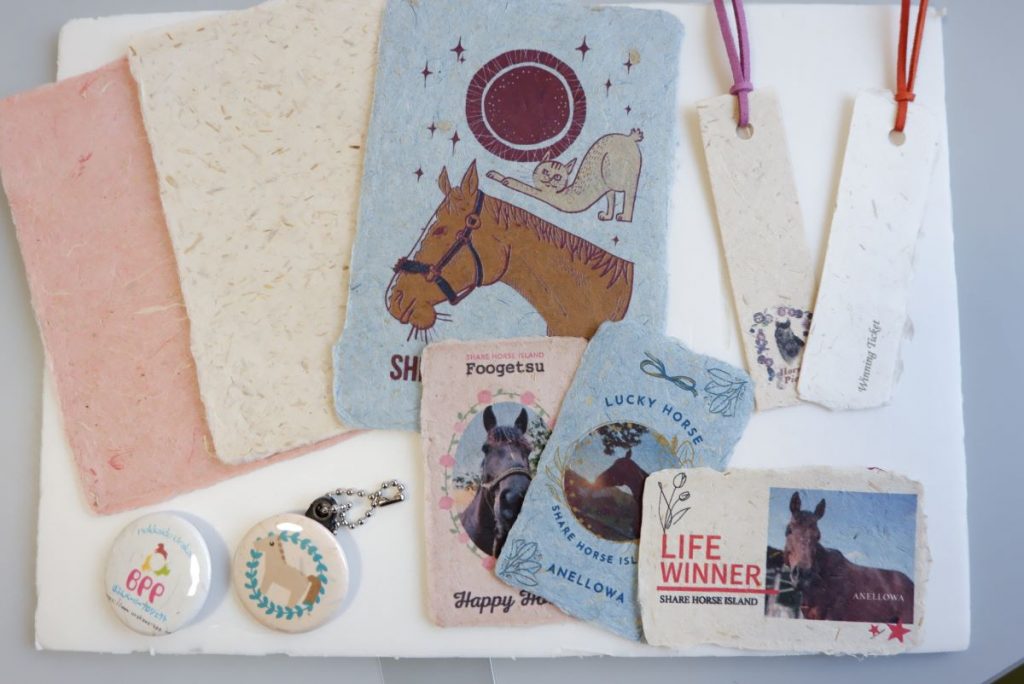
Products made from the paper are sold at cooperating farms, the Urakawa Tourist Association, and on the Horse Droppings website. TCC Japan, an organization that supports retired racehorses, sold the products at a cafe event in Omotesando, Tokyo, in April 2023.
Horses as Partners
Kiso and Dosanko horses, two Japanese breeds, can be seen leisurely grazing at the Hatarakuuma ('Working Horse') Ranch in Yamatokoriyama, Nara Prefecture. The pasture stretches over a hilly area of about 10,000 square meters, with orchards and rice terraces. Horses are essential for plowing, removing weeds, and transporting thinned timber produced from forest maintenance.
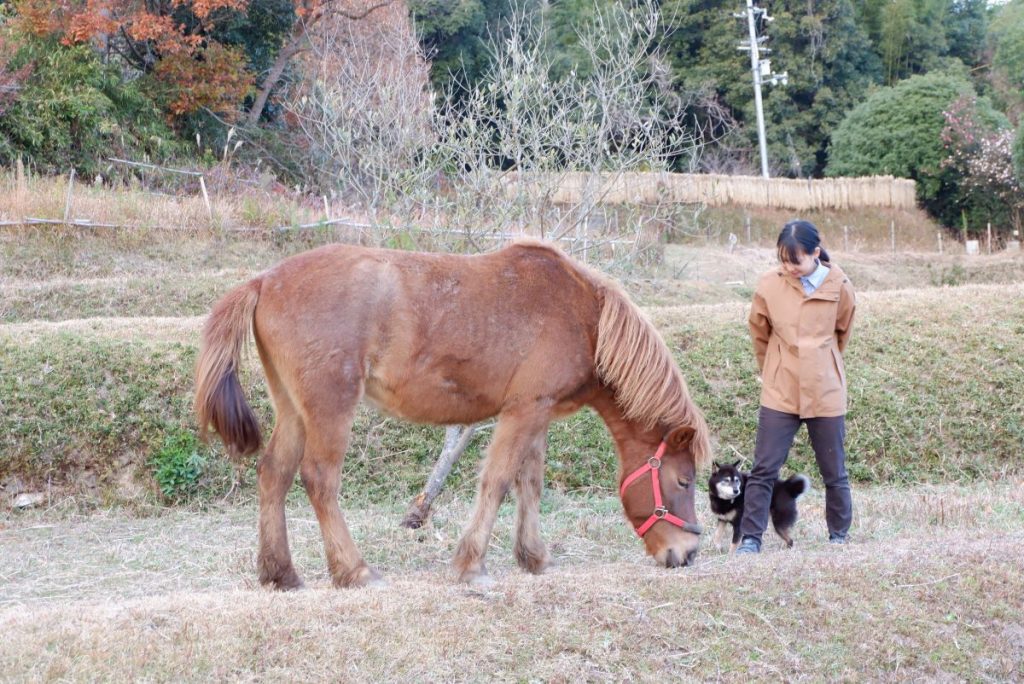
Ranch manager, Hitori Matsukawa, 61, explains. "Just as the 'Jinba Ittai' ('man and horse are one') saying goes, horses have been our important partners since ancient times."
Matsukawa himself has cared for horses since childhood when there were horses working in the fields and mountains at his grandparents’ home in Wakayama Prefecture. At the ranch, he also supervises ten young people from an entrepreneurship school who take care of the horses.
Matsukawa's motto is "Living with Horses." He hosts field trips from Osaka nursery schools and visits corporations and local governments to teach about promoting tourism and regional revitalization through horses. He points out that "making the most of horses leads to regional development."
このページを 日本語 で読む






